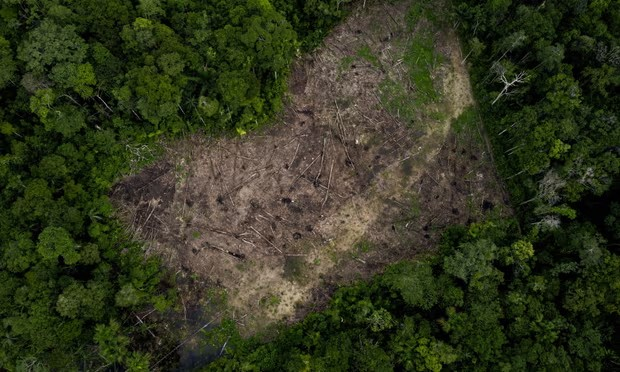EU and Indonesia collectively assessed the progress made by the Joint Task Force on the implementation of the EU Regulation on Combating Deforestation, EEAS reports.
Ibu Musdhalifah Machmud, co-chair of the EUDR Joint Task Force and Senior Advisor for Connectivity, Service Sector, and Natural Resources, Coordinating Ministry for Economic Affairs for the Republic of Indonesia met with Florika Fink-Hooijer, Director-General for the Environment, European Commission on the margins of the World Water Forum hosted by Indonesia on 21 May 2024 in Bali.
Both sides expressed their appreciation for the fruitful co-operation on the transition to deforestation-free supply chains through the Joint Task Force. The EU and Indonesia reaffirmed their commitment to ensure smooth trade flows and strengthen deforestation-free supply chains.
They also exchanged views on the status of preparations for the entry into force of the Regulation. Regarding the IT system, the EU confirmed that it will ensure data confidentiality and interoperability.
The EU commended Indonesia’s efforts to improve traceability and transparency of supply chains of sustainable goods through the National Dashboard initiative. Both sides will continue to work closely together on its implementation and further develop towards geolocation-enabled traceability.
The EU welcomed Indonesia’s efforts to engage smallholder farmers in the value chain and both sides agreed to further engage them in the next steps.
Sharing views on climate issues
The EU and Indonesia discussed possibilities for technical discussions between the Indonesian authorities and the European Commission’s Joint Research Centre to exchange views on relevant forest maps under the regulation.
Both sides welcomed the forthcoming joint study on EUDR legality requirements in the Indonesian context. The study is expected to produce a list of laws and regulations in force in Indonesia that will make it easier for operators and traders to fulfil their due diligence obligations.
Ibu Musdhalifah Machmud said during the meeting:
The Joint Task Force between Indonesia, Malaysia and the EU is a constructive mechanism for dialogue and finding solutions to matters of high technical complexity, such as forest cover maps, facilitation of the due diligence process and data privacy. The Indonesian Government has established a National Dashboard for sharing information and data for traceability of commodities. The system will help develop relevant capacities and facilitate more efficient operations to export to global markets.
Director-General Fink-Hooijer also stressed:
I commend Indonesia’s efforts to strengthen and roll out traceability solutions for key commodities such as palm oil, timber, rubber and coffee in the context of the National Dashboard Initiative, thereby contributing to enhance transparent, legal and deforestation-free supply chains EUs is ready to continue working jointly with Indonesia towards enhancing deforestation-free supply chains.
Global fight against deforestation
The EU Deforestation Regulation (EUDR) aims to contribute to the global fight against deforestation and forest degradation by addressing both legal and illegal deforestation. It fulfils the international community’s commitments to halt deforestation (SDGs, Glasgow Declaration, etc.). The Regulation covers seven commodities (rubber, timber, cattle, palm oil, soya, coffee and cocoa) produced within or outside the EU. It imposes due diligence and strict traceability obligations on companies wishing to supply these goods or related products to the EU market to clear their supply chains of products linked to deforestation and forest degradation.
Against the backdrop of the triple planetary crisis of biodiversity loss, climate change and pollution, Indonesia and the European Union have a mutual interest and an important role to play in promoting viable pathways to development and prosperity that do not contribute to the depletion of our environment.
Meanwhile, taking action on deforestation and forest degradation is critical to addressing climate change and biodiversity loss. Deforestation and forest degradation account for about 11 per cent of anthropogenic greenhouse gas emissions and are also a major cause of biodiversity loss. Addressing these critical global challenges requires joint collaboration and partnership.
